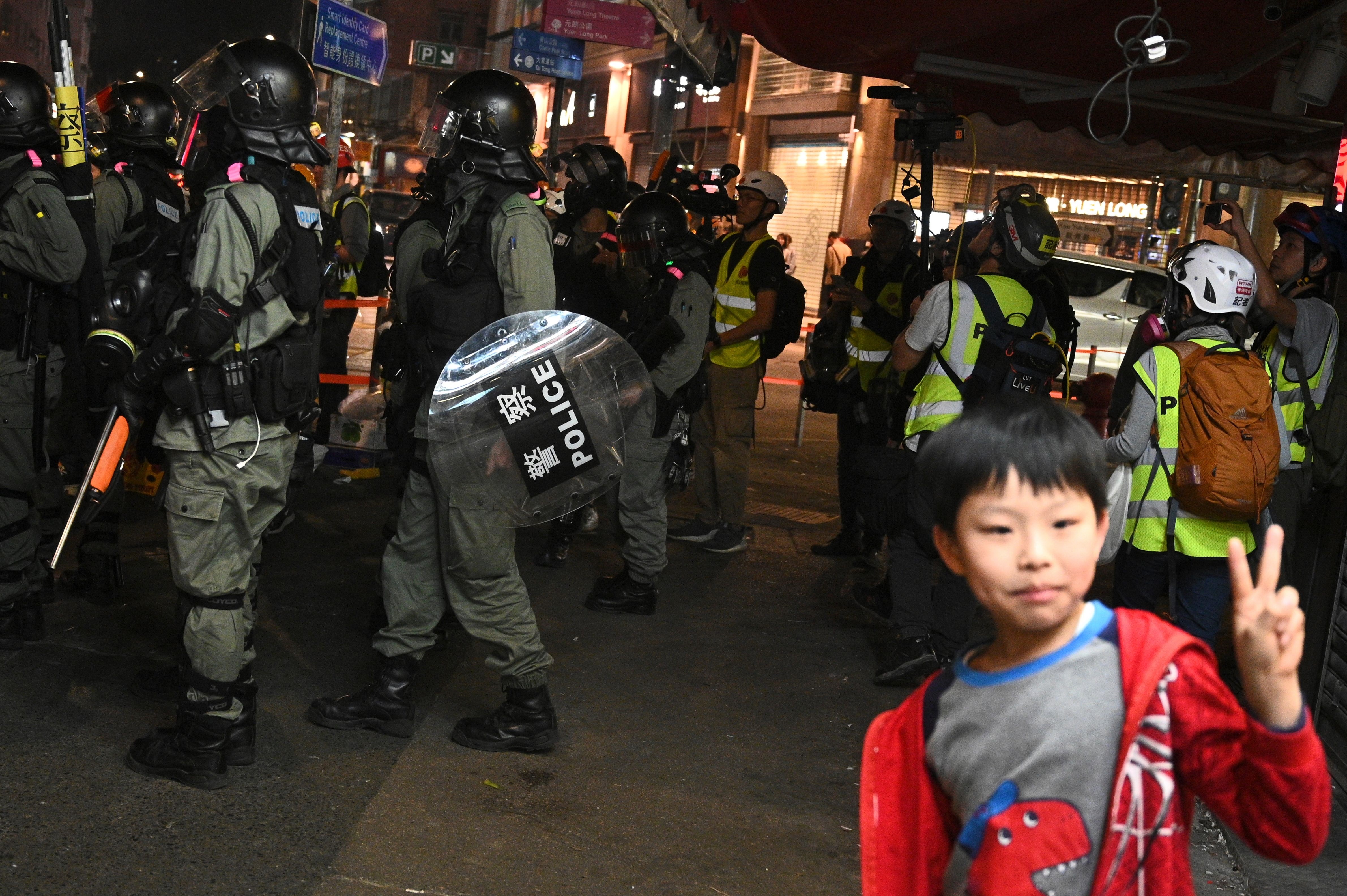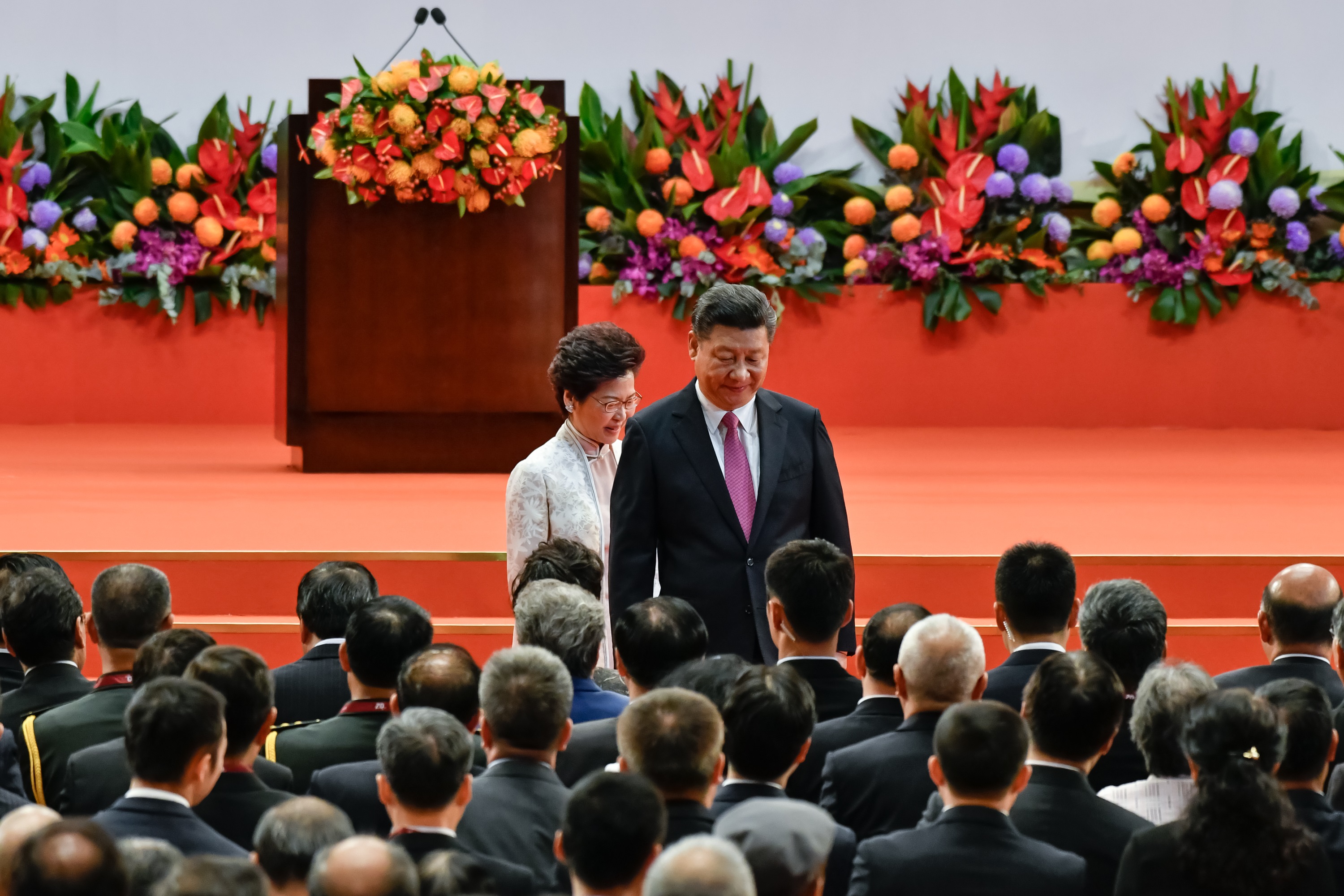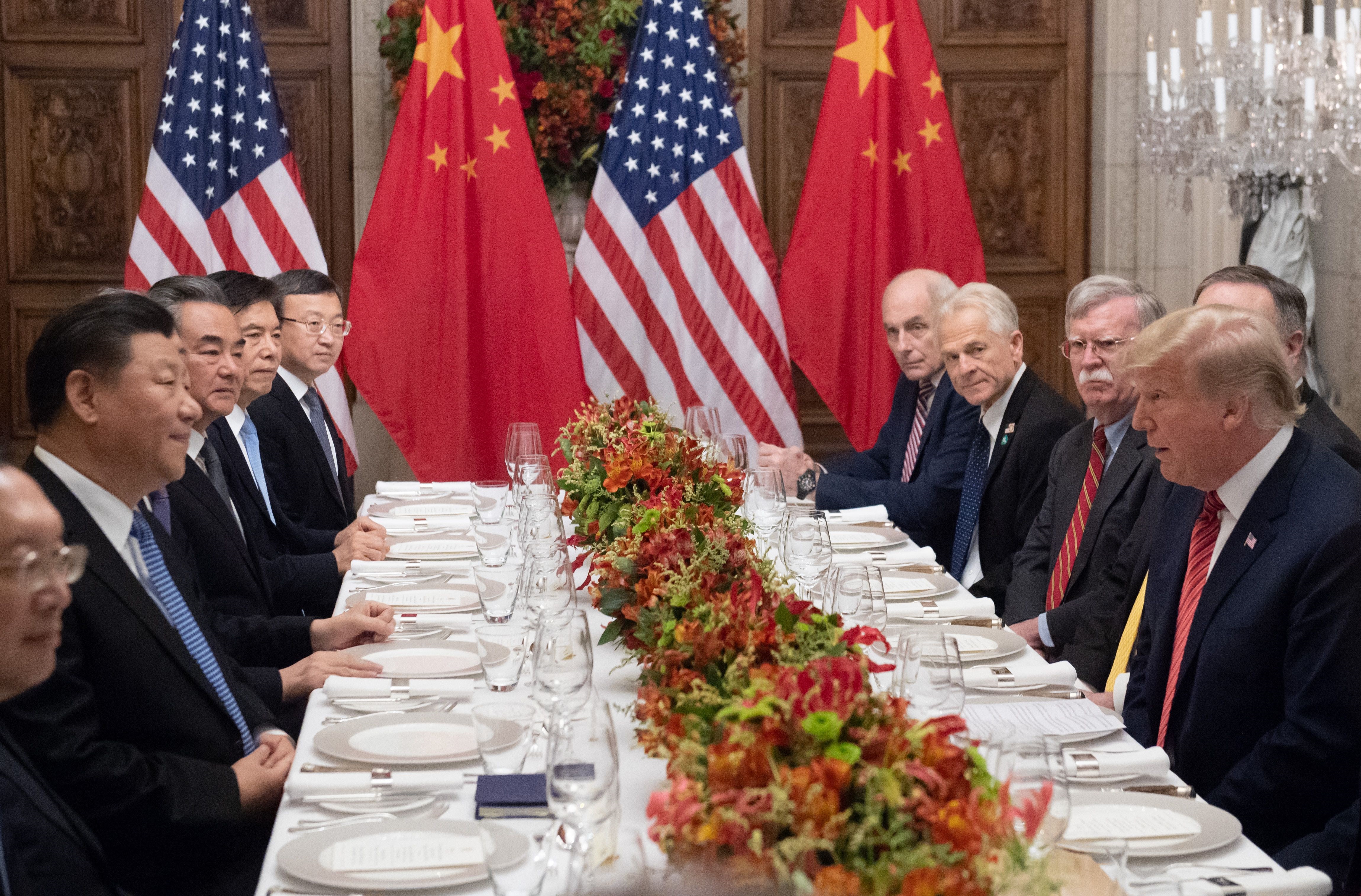Everyone seems to know what is going these days.
Just look through the comments section of any social media post about what is happening in Hong Kong.
Everyone knows exactly how to solve the crisis, diagnose what the problem is, and is absolutely clear-headed about how to apportion blame and responsibility, and even praise.
And having read more than a few hundred opinion pieces and analyses on the subject ever since the Hong Kong protests unfolded in June 2019, I'm afraid to say I am just slightly a bit better than none the wiser about what is going on.
Maybe I am not looking at the right places.
I can't seem to find the replies to some of the basic questions despite searching high and low for a semblance of an answer, having pored through the free-flowing amount of words spewing from the ether that is the internet, about an issue that is ongoing, evolving, and with no end in sight.
Or maybe I am just stupid.
Please indulge me as I speak plainly about my unknowledge.
 A boy poses for a photo in front of a group of riot police after a pro-democracy rally in Yuen Long district of Hong Kong on November 21, 2019. (Photo by Philip Fong / AFP via Getty Images)
A boy poses for a photo in front of a group of riot police after a pro-democracy rally in Yuen Long district of Hong Kong on November 21, 2019. (Photo by Philip Fong / AFP via Getty Images)
1. Why is Hong Kong so important to China?
This is a bothersome question that appears easy, but isn’t.
China has a population of 1.4 billion people.
Hong Kong has seven million.
China is effectively 200 times bigger than Hong Kong in terms of the number of people.
China's domestic consumption dwarfs Hong Kong by so many times, I don't even know how to write it in English.
 Chinese President Xi Jinping made a visit to Hong Kong between June 29 and July 1 for the 20th anniversary of the city's handover to Chinese sovereignty. (Photo by Keith Tsuji/Getty Images)
Chinese President Xi Jinping made a visit to Hong Kong between June 29 and July 1 for the 20th anniversary of the city's handover to Chinese sovereignty. (Photo by Keith Tsuji/Getty Images)
Okay, I get that Hong Kong is a harbour.
And coastal cities are like crown jewels because they are beneficiaries of trade via the sea and leverage network connections, and are favoured for bringing the world together as it serves as a gateway and intersection.
But China since the 1970s has gradually lifted large swathes of its population out of poverty without even having Hong Kong at its beck and call.
So, if China could do that, then why does it need Hong Kong so badly now more than ever?
In other words, a China without Hong Kong is less good? Less strong?
There has been some talk lately that China can easily just let Hong Kong go to waste, as it has Shenzhen as a replacement, if not now, then in time to come.
If that is true, doesn't it make it even stranger that China just doesn't want to give Hong Kong up, regardless?
Basically, what is the calculation?
Because a one-party ruler demands it?
2. So, is it about consolidation of territory?
So, if the query is couched in broader terms -- i.e. an expansion of territory -- maybe it makes a bit more sense to a layperson.
If absorbing Hong Kong is just part of a larger expansionist plan to absorb the rest of the South China Sea, then it theoretically makes things more congruent.
 Ambulance crew members enter the Hong Kong Polytechnic University in the Hung Hom district in Hong Kong on November 22, 2019. (Photo by Dale De La Rey, AFP via Getty Images.
Ambulance crew members enter the Hong Kong Polytechnic University in the Hung Hom district in Hong Kong on November 22, 2019. (Photo by Dale De La Rey, AFP via Getty Images.
But then again, if China is bent on subsuming the entire South China Sea under its rule, it can still go ahead with it without Hong Kong's assent?
Or is it even taboo to spell out so starkly what a waking dragon is planning to do?
Which is why there seems to be a lack of writing about how bringing Hong Kong into China’s sphere of governance is a prelude to something more major?
3. Is expanding territory necessary in this day and age?
This then leads to the question of whether physical expansion is exactly the most necessary way forward for a country that is a superpower.
Let's look at the countries in continental Europe.
France isn't exactly a huge country with a lot of land.
Neither is Germany.
Or Britain.
But these are all superpowers and nuclear states.
Of course, European countries are part of a larger bloc that collectively have bargaining power that individually they might not have.
Couched in these terms, it kind of makes sense why China would want to absorb the whole of the Xinjiang region -- because they have a lot of natural resources and they lead to the more convenient expansion of the Belt and Road Initiative.
But Hong Kong?
4. How often has reunification worked?
Has anyone actually looked into the history of reunification of countries and figured out how many have panned out?
Off the top of my small head, I can only think of perhaps East and West Germany that enjoyed a triumphant and momentous reunion after the fall of the Berlin Wall.
Around the rest of the world, countries are just split by some hard border and have preferred to remain that way.
Northern Ireland and the Republic of Ireland are still having some problems.
Not to mention North and South Korea.
Singapore and Malaysia had a go at this federation thing, and it was just tragic for both sides.
If unification didn't work out, staying together is also just or more painful.
Such as India and northeast India (e.g. Nagaland and Shilong), which have been struggling in the past 70 years trying to make themselves some separate sovereign entity but most of you have probably never heard about them before until now.
Because did you even know that close to 90 percent of the population in northeast India identify as Christian?
If history has been harsh on reunification, then how can any country now expect to pull it off without pain and suffering?
But not for the want of trying, right?
Okay, let's say if what is happening now in Hong Kong and China has no precedent, what is the road map for reunification other than by fiat or to make it less painful?
5. Is China behaving in the same way foreign powers used to treat China?
 Office workers gather in support of pro-democracy protesters during a lunch break rally in the Central district of Hong Kong on November 22, 2019. Photo by Nicolas Asfouri / AFP via Getty Images.
Office workers gather in support of pro-democracy protesters during a lunch break rally in the Central district of Hong Kong on November 22, 2019. Photo by Nicolas Asfouri / AFP via Getty Images.
So, here's the irony about all this.
Western foreign powers used to kick China around when it was weak.
Made China give up Hong Kong.
Made China suffer humiliating defeats with the use of tech and cunning.
Made China the butt of imperialism.
Now that China is strong, she can command a certain amount of decorum and respect on the world stage as a rising superpower.
Totally acceptable because she totally deserves the accolades now for getting her act together the past four decades doing the grunt work of making her people's lives better on absolute terms.
She represents an alternative system that is working.
But if China is coercing and imposing on Hong Kong the way that foreign powers used to coerce and impose on China, that's just not knowing any better.
I get that it has been expressed before that China is this overflowing fountain of wealth that will bless any country in its vicinity.
Well, if that's the case, countries will gravitate towards it naturally, without coercion or the need to arm-wring anyone?
6. Are there no other arrangements that can work out between Hong Kong and China?
There has been a lot of talk about "one country, two systems".
Can there be other iterations? Such as major trade partners? A satellite state?
And what is the most likely scenario if Hong Kong did not become part of China?
Can Hong Kong be used by the Americans to contain China?
 US President Donald Trump (R) and China's President Xi Jinping (L) along with members of their delegations, hold a dinner meeting at the end of the G20 Leaders' Summit in Buenos Aires, on December 01, 2018. (Photo by SAUL LOEB / AFP via Getty Images.
US President Donald Trump (R) and China's President Xi Jinping (L) along with members of their delegations, hold a dinner meeting at the end of the G20 Leaders' Summit in Buenos Aires, on December 01, 2018. (Photo by SAUL LOEB / AFP via Getty Images.
How does that even work?
And if that is a genuine concern and scenario, can China then make a better case internationally that doesn't sound like it is making wild claims or pushing some version of its propaganda?
Because the way China is being painted and perceived worldwide now is causing her some reputational deficit.
If one can be good at economics, can one get better at media?
So, can China come off a bit more "cool" and not so humourless?
No easy or short answers?
Hopefully, by putting all these queries out in the open, maybe someone with some free time can scribble down some answers to these open-ended questions.
Maybe all of you have already gotten these answers down pat, I apologise for wasting your time, making you read this far.
I understand that it is likely not possible to express answers to these questions in short one or two sentences.
So, maybe you all have a book with all these answers in them that you have on your shelves or coffee tables at home, you can just point me to that tome and I can order one copy on Book Depository and it will be delivered to me in the next 14 to 18 working days and I can spend the next two weeks poring through it and enlightening myself?
Thanks.
Top photo via Unsplash
If you like what you read, follow us on Facebook, Instagram, Twitter and Telegram to get the latest updates.
